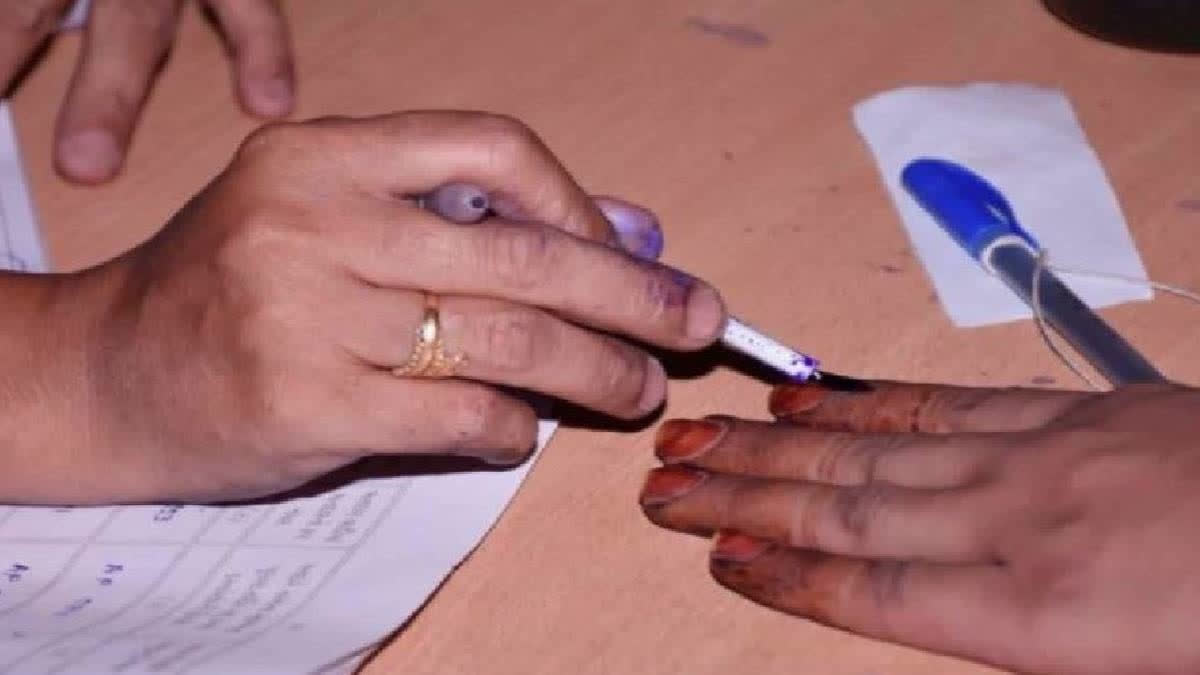New Delhi: With alliances changing and key players remaining non-committal in public, the Maldives presidential election run-off between incumbent Ibrahim Solih and his opponent Mohamed Muizzu scheduled for September 30 seems to be heading for a cliffhanger of a contest. With none of the eight candidates in the fray securing 50 per cent of the vote in the first round of voting on September 9, the presidential election is headed for a run-off between Solih and Muizzu on September 30. In the first round, Muizzu garnered 46.06 per cent of the votes while Solih got 39.05 per cent. A run-off is required when none of the candidates gets 50 per cent of the votes.
Muizzu, who is the Mayor of the Maldives’ capital Male, is the joint candidate of the People’s National Congress (PNC) and the Progressive Party of Maldives (PPM). Initially, former President Abdulla Yameen of the PPM, known for his pro-China stance, was nominated as the joint candidate of the PNC and the PPM. But, since Yameen is serving an 11-year jail term due to a money laundering case, he became ineligible to contest the election. As a result, Muizzu of the PNC was nominated as the joint PNC-PPM candidate.
Solih, who is known as being pro-India, is the leader of the ruling Maldivian Democratic Party (MDP). He qualified to contest the election after defeating former President Mohamed Nasheed in the MDP primaries in January this year. A few months after his defeat in the primaries, Nasheed parted ways with Solih, a childhood friend, and floated a new party called The Democrats. Nasheed, who is also known for his pro-India stance, then put up Ilyas Labeeb as The Democrats’ candidate against incumbent President Solih. Labeeb, however, could garner only 7.18 per cent of the votes in the first round.
With Muizzu taking the lead in the first round, the presidential run-off scheduled for September 30 will keep India on its toes. As part of New Delhi’s Neighbourhood First Policy, the Maldives is strategically significant to India because of its location in the Indian Ocean. India and Maldives share ethnic, linguistic, cultural, religious and commercial links steeped in antiquity and enjoy close, cordial and multi-dimensional relations. However, regime instability in the Maldives since 2008 has posed significant challenges to the India-Maldives relationship, particularly in the political and strategic spheres.
Ties between India and the Maldives deteriorated significantly when Yameen served as the President between 2013 and 2018. It was only after Solih came to power in 2018 that ties between New Delhi and Male improved. Although India continues to be an important partner of the Maldives, New Delhi cannot afford to be complacent over its position and must remain attentive to the developments in the Maldives. India must play a key role within the Indo-Pacific security space to ensure regional security in South Asia and surrounding maritime boundaries. China’s strategic footprint in India’s neighbourhood has increased. The Maldives has emerged as an important 'pearl' in China’s “String of Pearls” construct in South Asia.
Nasheed, till the filing of this report, has remained non-committal about whether his party The Democrats would back Solih in the run-off. Meanwhile, the Maldives Democratic Alliance (MDA), which had supported the incumbent Solih government, has now switched sides and is backing Muizzi. At the same time, the Jumhooree Party, whose candidate Qasim Ibrahim came fifth in the first round after securing 2.47 per cent of the votes, has decided to back Solih.
Also read:Maldives presidential poll: Yameen out of race but his 'proxy' keeps India anxious
